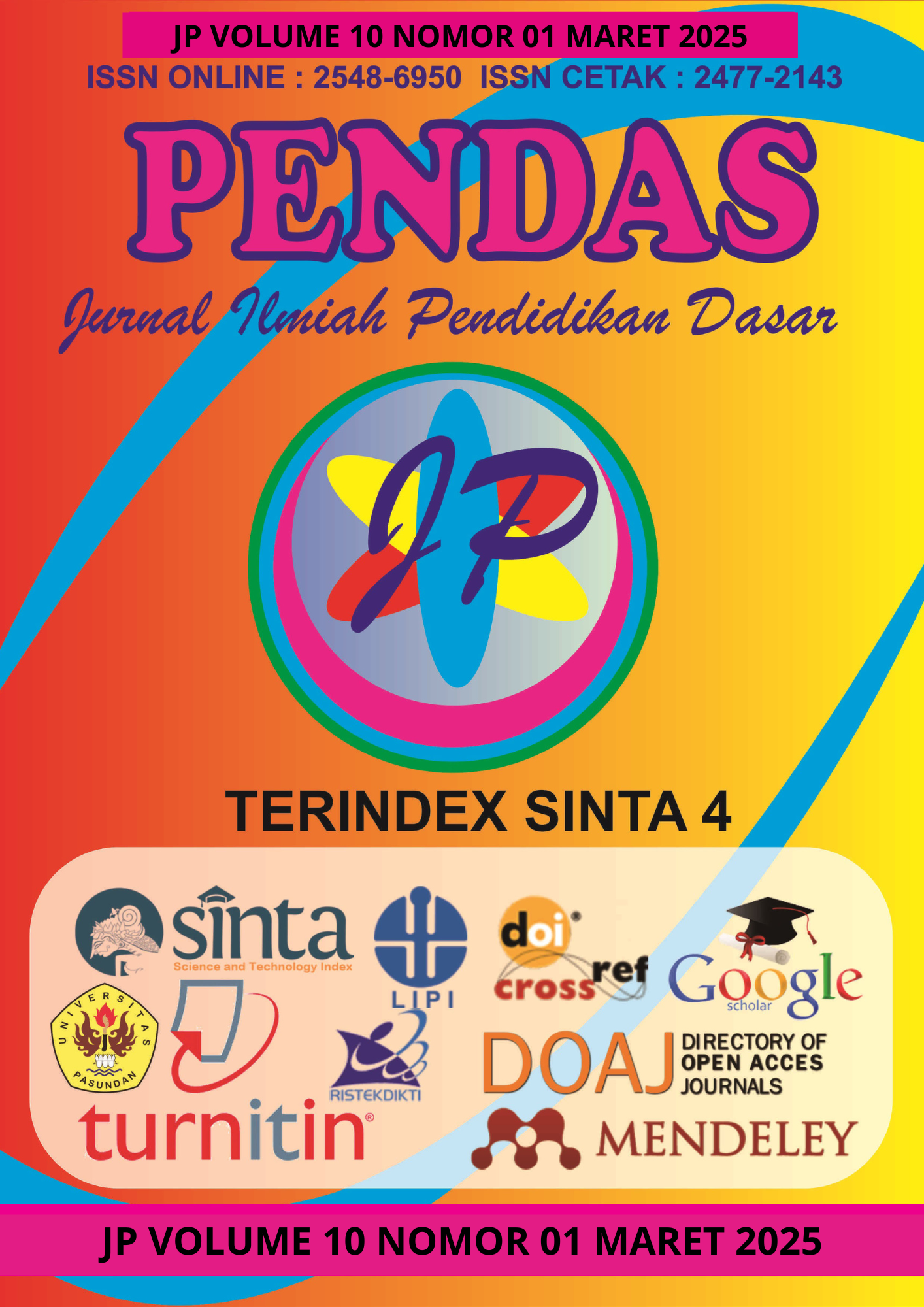PENGARUH MODEL PROBLEM BASED LEARNING TERHADAP MOTIVASI DAN KEMAMPUAN BERPIKIR KRITIS SISWA DALAM MATA PELAJARAN IPAS KELAS V
DOI:
https://doi.org/10.23969/jp.v10i01.23446Keywords:
Model Problem Based Learning, Motivasi Belajar, Kemampuan Berpikir Kritis.Abstract
Student-centered learning has an influence on improving critical thinking skills and learning motivation of students. Science learning, with the complexity and dynamics of the material taught, provides a good opportunity for the development of critical thinking skills. This study aims to determine the effect of the problem-based learning model on the motivation and critical thinking skills of students in the subject of science for grade V. This study is a quantitative study with a quasi-experimental design with a nonequivalent control group design model. The subjects in this study were 46 students of grade V. The instrument in this study used a questionnaire for the motivation variable and a test for students' critical thinking skills. The data analysis method through data analysis prerequisites with data distribution normality tests and data homogeneity tests, then hypothesis testing using the t-test (independent sample t-test). The results of this study indicate that the problem-based learning model has a significant effect on the learning motivation of grade V students in the subject of science at MI Terpadu Bina Putra Cendikia Ponorogo. The problem-based learning model has a significant effect on the critical thinking skills of grade V students in the subject of science at MI Terpadu Bina Putra Cendikia Ponorogo. This is proven by hypothesis testing that there is a significant difference between the critical thinking abilities of students in the experimental class and the control class.
Downloads
References
Amir, T. (2010). Inovasi pendidikan melalui problem based learning: bagaimana pendidik memberdayakan pemelajar di era pengetahuan. Pustaka Bleajar.
Al-Tabany, Trianto Ibnu B. (2014). Mendesain Model Pembelajaran Inovatif, Progresif dan Kontekstual. Jakarta: Kencana.
Cindy, E dan Hmelo-Silver (2004). Problem based learning :What and how do students learn? Educational Psychology Review, Vol.16, No.3.
Collins, and Paul Duguid. (2006) “Situated cognition and the culture of learning.” 1989 18.1: 32-42.
Haryanti, Y. D. (2017). Model Problem Based Learning Membangun. 3(2).
Hung, W., Jonassen, D. H., & Liu, R. (2008). Problem-based learning. In Handbook of research on educational communications and technology (pp. 485–506). Routledge.
Octavia, S. (2020). Model-Model Pembelajaran. Cv. Budi Utama.
Rusmono. (2014). Strategi Pembelajaran Dan Model Problem Based Learning Itu Perlu: Untuk Meningkatkan Profesionalisme Guru. Ghalia Indonesia.
Sagala, S. (2010). Supervisi Pembelajaran Dalam Profesi Pendidikan. Bandung: Alfabeta.
Warsono, & Hariyanto. (2012). Pembelajaran Teori Aktif Dan Asesmen. Remaja Rosdakarya.
Downloads
Published
Issue
Section
License
Copyright (c) 2025 Pendas : Jurnal Ilmiah Pendidikan Dasar

This work is licensed under a Creative Commons Attribution 4.0 International License.














































